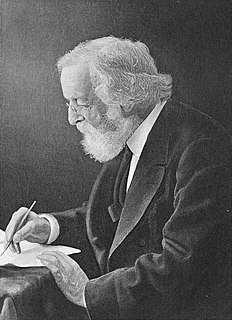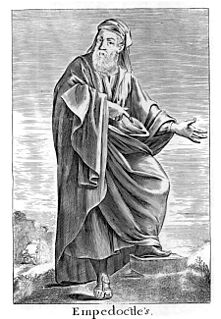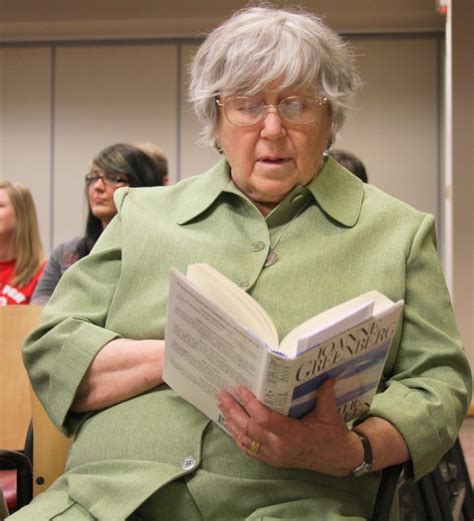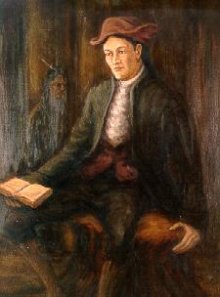A Quote by Gabriel Garcia Marquez
This was his world, he said to himself, the sad, oppressive world that God had provided for him, and he was responsible to it.
Related Quotes
Had Christ not risen we could not believe Him to be what He declared Himself when He "made Himself equal with God." But He has risen in the confirmation of all His claims. By it alone, but by it thoroughly, is He manifested as the very Son of God, who has come into the world to reconcile the world to Himself. It is the fundamental fact in the Christian's unwavering confidence in "all the words of this life.
Various accounts of Empedocle's death are given in ancient sources. His enemies said that his desire to be thought a god led him to throw himself into the crater of Mount Etna so that he might vanish from the world completely and thus lead men to believe he had achieved apotheosis. Unfortunately the volcano defeated his design by throwing out one of the philosopher's sandals.
Part of the inner world of everyone is this sense of emptiness, unease, incompleteness, and I believe that this in itself is a word from God, that this is the sound that God’s voice makes in a world that has explained him away. In such a world, I suspect that maybe God speaks to us most clearly through his silence, his absence, so that we know him best through our missing him.
"He passed over his fall, and appointed him first of the Apostles; wherefore He said: ' 'Simon, Simon,' etc. (in Ps. cxxix. 2). God allowed him to fall, because He meant to make him ruler over the whole world, that, remembering his own fall, he might forgive those who should slip in the future. And that what I have said is no guess, listen to Christ Himself saying: 'Simon, Simon, etc.'"
The world is full of men who want to be right, when actually the secret of a man's strength and his pathway to true honor is his ability to admit fault when he has failed. God wants to fill the church with men who can say they are wrong when THEY ARE WRONG. A man who is willing to humble himself before God and his family and say: "I was wrong." will find that his family has all the confidence in the world in him and will much more readily follow him. If he stubbornly refuses to repent or admit he was wrong, their confidence in him and in his leadership erodes.
A truly humble man is sensible of his natural distance from God; of his dependence on Him; of the insufficiency of his own power and wisdom; and that it is by God's power that he is upheld and provided for, and that he needs God's wisdom to lead and guide him, and His might to enable him to do what he ought to do for Him.
I once had a patient who used to practice the most horrible tortures on himself, and when I asked him why he did such things, he said, 'Why before the world does them.' I asked him then, 'Why not wait and see what the world will do?' and he said, 'Don't you see? It always come at last, but this way at least I am master of my own destruction.
She stood before him and surrendered herself to him and sky, forest, and brook all came toward him in new and resplendent colors, belonged to him, and spoke to him in his own language. And instead of merely winning a woman he embraced the entire world and every star in heaven glowed within him and sparkled with joy in his soul. He had loved and had found himself. But most people love to lose themselves.
It is human self-renunciation when a man denies himself and the world opens up to him. But it is Christian self-renunciation when he denies himself and, because the world precisely for this shuts itself up to him, he must as one thrust out by the world seek God's confidence. The double-danger lies precisely in meeting opposition there where he had expected to find support, and he has to turn about twice; whereas the merely human self-resignation turns once.
The ignorant man is not free, because what confronts him is an alien world, something outside him and in the offing, on which he depends, without his having made this foreign world for himself and therefore without being at home in it by himself as in something his own. The impulse of curiosity, the pressure for knowledge, from the lowest level up to the highest rung of philosophical insight arises only from the struggle to cancel this situation of unfreedom and to make the world one's own in one's ideas and thought.
It is impossible for any rational creature to be happy without acting all for God. God Himself could not make him happy any other way... There is nothing in the world worth living for but doing good and finishing God's work, doing the work that Christ did. I see nothing else in the world that can yield any satisfaction besides living to God, pleasing Him, and doing his whole will.
If God wishes to be born as man and to unite mankind in the fellowship of the Holy Ghost, He suffers the terrible torment of having to bear the world in its reality. It is a crux; indeed, He Himself is His own cross. The world is God's suffering, and every individual human being who wishes even to approach his own wholeness knows very well that this means bearing his own cross. But the eternal promise for him who bears his own cross is the Paraclete.







































